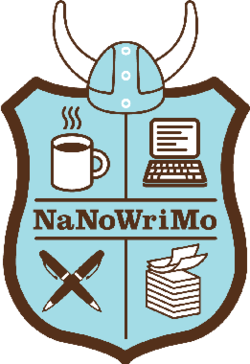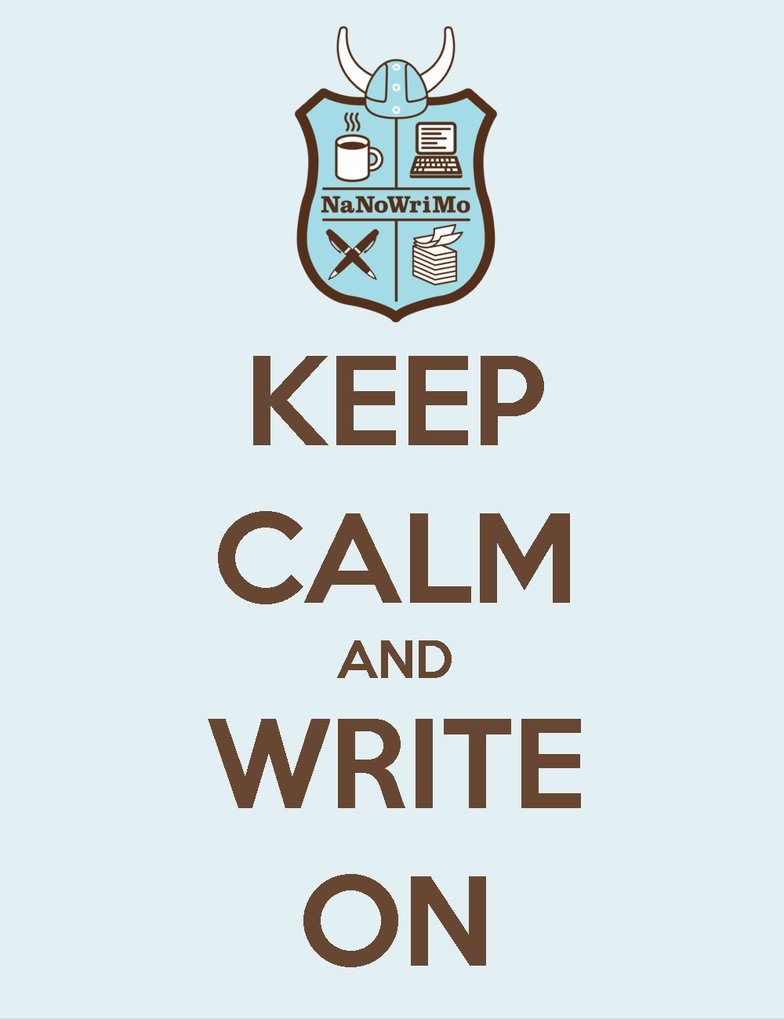Further Reading
For more NaNoWriMo tips and tricks, check out the links below!
50,000 Words in 30 Days: Get Ready for National Novel Writing Month
On National Novel Writing Month: The Importance of Community Encouragement for Writers
NaNo Prep (from the NaNoWriMo website)
NaNoWriMo Advice: 30 Tips for Writing a Book in 30 Days
A First Timer’s Guide to Prepping for NaNoWriMo
Feature
Prepping for NaNoWriMo
How to Get the Most from National Novel Writing Month
 National Novel Writing Month—or NaNoWriMo—is nearly upon us. If you’ve never participated in the month-long writing competition, 2018 is your year. Check out our top nine tips below for how to meet your writing goals and stay motivated all November long.
National Novel Writing Month—or NaNoWriMo—is nearly upon us. If you’ve never participated in the month-long writing competition, 2018 is your year. Check out our top nine tips below for how to meet your writing goals and stay motivated all November long.
1. Block off your calendar.
In my opinion, November is a tricky month to write 50,000 words. You only get 30 days instead of 31, and many of us don’t make a lot of progress over Thanksgiving. That’s why it’s even more important to block off time every day of the month to make sure you save time to write. Maybe you get up an hour earlier or turn off Netflix in the evening. Whatever it takes, give yourself at least 30-60 minutes each day for writing.
2. Put your lunch break—or any break—to good use.
Many of us get a lunch break, even if it’s just for 30 minutes. You might not have a computer available, but carry a notebook around to jot down ideas or even scenes during your downtime. This goes for standing in line at the grocery store, sitting in the waiting room at the doctor’s office…any time you’d normally be staring off into space or scrolling through your phone, use that time for writing!
3. Join a NaNoWriMo writing group.
Start by looking for writers in your home region. As the website says, “Think of your home region as your Hogwarts house.” Your region is full of people on the same mission as you, and you can find support and helpful hints from fellow writers. Better yet, get involved with a local group so you can have some accountabili-buddies. Final a nearby Come Write In space and make some writerly connections!
If you’re in an isolated area or don’t have time for a writing group, be sure to follow NaNoWriMo on social media. Their Twitter account is full of motivational posts, as well as takeovers by NaNoWriMo coaches and authors.
4. Set goals…and stick to them.
The hardest part about NaNoWriMo is sitting down and writing every single day. To get to 50,000 words, you’ll need to write at least 1,667 words each day, and I recommend aiming for 2,000. (That way your turkey coma won’t slow you down too much.)
Set daily goals for yourself based on your schedule, and then make sure there’s a way to hold yourself accountable. You can post your progress on your NaNoWriMo page, keep track with a supportive friend/family member, or reward yourself with cookies each time you meet a goal. Whatever works best for you.
5. Start where you are.
You don’t have to start a brand-new project for NaNoWriMo. You can keep working on your latest WIP, or even finish one book and move onto the next. All that really matters is that you complete 50,000 words toward a project. Good news, right? There’s no pressure to come up with another genius idea! Besides, most novels clock in at 60-70,000 words, so you’ll have some wiggle room if you’re working on an ongoing story.
6. Outline.
Not everyone is an outliner, but I highly recommend it for NaNoWriMo. At least get a basic plot or structure down on paper—knowing it will change along the way—so you have a general roadmap for your project. You can do this before NaNoWriMo starts so that when November 1st hits, you’ll be off and running.
 7. Write what you want.
7. Write what you want.
Some people write chronologically, while others jump around from beginning to middle to end during the drafting stage. When it comes to NaNoWriMo, write what you want. Get the most interesting, exciting, or tense scenes down on paper when the inspiration hits. You can always go back and bridge the gaps. Or, if you know how the book is going to end, trying writing backward! The best way to keep writing 2,000 words day after day is to write what moves you.
8. Keep writing even if you fall behind.
Like I said, November can be a tough month to get to 50,000 words. If you start falling behind on your project, don’t give up! Just keep writing whenever you can. Keep in mind that while the goal of NaNoWriMo is to write 50,000 words, it’s not really a competition. It’s more of an encouraging opportunity to focus and write. You may not complete your story, but you’ll be much farther along than you were before!
9. Finish that book!
You made it to the end of the month—congratulations! But don’t stop there. Keep working on your story over the months to come. You may want to finish writing or you may want to go back and do some editing. Either way, don’t waste the time and effort you put in during November.
* * * * *
 Jillian Bergsma Manning is a contributing editor for Independent Publisher. She loves reading and writing but not arithmetic. Follow her on Twitter at @LillianJaine or on her blog at www.editorsays.com.
Jillian Bergsma Manning is a contributing editor for Independent Publisher. She loves reading and writing but not arithmetic. Follow her on Twitter at @LillianJaine or on her blog at www.editorsays.com.

